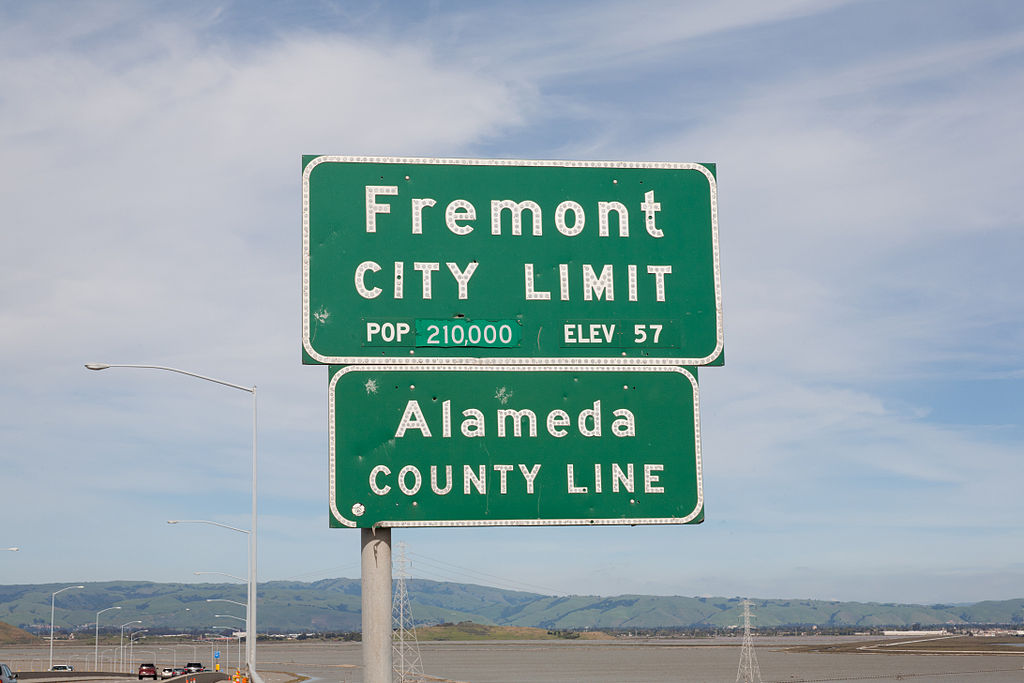By Steven Tavares.
Fremont’s potential move from at-large to district-based elections represents the most stunning change to how the city chooses its elected leaders since its founding, said Fremont City Attorney Harvey Levine. The switch is also occurring at “lightning speed,” he added during testimony before the Fremont City Council on Tuesday night.
With the type of swiftness that usually arrives via the threat of a potentially-costly lawsuit, Fremont is poised to radically change how it elects members to the city council, in addition, to possibly expanding the number of seats from the current five to seven.
Fremont councilmembers unanimously approved a resolution Tuesday night that signals intent to moved from at-large to district-based council elections. The resolution sets off a frantic next 90 days when the city will conduct five public meetings to discuss exactly how the districts are divvied up, how they will look, the method for phasing in the seats, and based on council comments Tuesday night, the possibility the five-member council will become seven (Six district seats and an at-large election for mayor.)
The impetus for the sea change in Fremont politics was a letter received Feb. 15 from Malibu-based attorney Kevin Shenkman who alleged the city’s at-large elections unfairly dilute the electoral chances of Latinos under the California Voting Rights Act. The complaint letter and threat of a lawsuit was deemed credible by Fremont City Attorney Harvey Levine. An outside consultant for the city later validated the complaint that voter polarization indeed exists in Fremont, Levine said Tuesday.
Perhaps, more importantly for city officials and taxpayers, Levine estimated the cost of defending the city’s at-large elections in court might exceed $1 million and Shenkman’s law firm has been highly successful in winning such cases, including a $3.5 million decision against the city of Palmdale.
Levine said Fremont’s move to district elections was coming to the council and residents at “lightning speed.” He labeled the electoral changes as “probably one of the largest and most serious changes in our voting structure since the beginning of Fremont.”
Fremont has faced this issue before when it was defeating in a ballot measure in 1972. Fifteen years ago it was also mentioned during city charter discussions, said Levine. “It’s coming back on a very fast tract at the moment.”
Under a new state law that somewhat shields cities from this type of litigation, Fremont now has 90 days to make a number of decisions that could reverberate over next year’s council elections and again two years later. If Fremont fails to comply, it risks allowing Shenkman to sue the city, said Levine.
The first of five public meetings begins April 25. On May 2 the council is scheduled to be presented with possible district maps. Another hearing follows on May 9. At the May 16 meeting the council will be expected to choose one of the maps, and the ordinance could be approved by June 6. “If you get all that done you’ve basically avoided Mr. Shenkman’s process and program,” said Levine.
All five members of the council did not take kindly to being boxed-in by Shenkman’s complaint letter, although, many of them admitted changes to the council’s composition were sorely needed. As one of the largest cities in Alameda County, Fremont at the same time, possesses one of the smallest city council’s.
“Let’s be kind and say there was a lot rubbish in there,” Fremont Councilmember Vinnie Bacon said of the complaint letter. “But let’s be honest, we’re doing this because of a lawsuit,” He added, though, “We’re being forced into doing something we should be doing anyway.” Bacon later advocated strongly for expanding the council to seven, in part because it could make it easier for grassroots candidates to compete financially. But he predicted the process of choosing district boundaries “is going to be an ugly process.”
There also appears to be no point in the city risking exorbitant legal fees for a lawsuit that appears solid, said Fremont Councilmember Rick Jones, who also added, “I don’t like this being shoved down our throats.”
Fremont Councilmember David Bonaccorsi also backed council expansion, but said his first impulse was to challenge the complaint letter. “As an attorney, I’m a bad client because there’s a part of me that wants to fight.” He called Shenkman’s threat “kind of a legislatively-sanctioned shakedown.”





